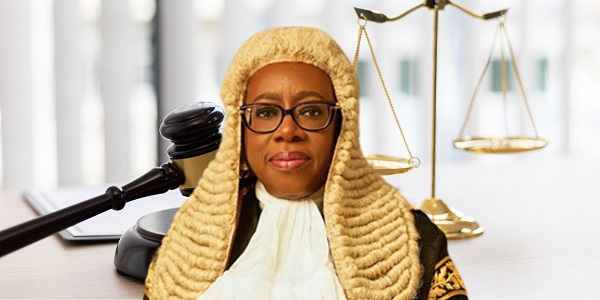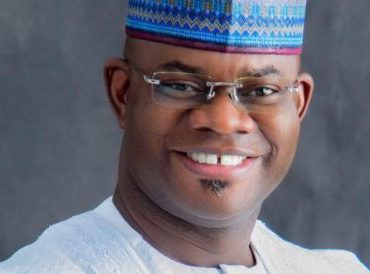CJN Advocates Pre-election Matters Terminate at Appeal Court

Lawyard is a legal media and services platform that provides…
The Senate, on Wednesday, screened and confirmed the appointment of Honourable Justice Kudirat Kekere-Ekun as the substantive Chief Justice of Nigeria (CJN).
The CJN, Justice Kudirat Kekere-Ekun emphasized the need for reforms in the judiciary, with a focus on digitalization, discipline, and anti-corruption measures.
Kekere-Ekun specifically advocated that all pre-election matters should be terminated at the Court of Appeal.
She equally pledged to encourage virtual hearings of cases and full digitalisation of the courts.
Kekere-Ekun suggested that a strict process should be adopted by the National Judicial Council (NJC) in the appointment of judges.
She decried frivolous comments in the media by senior lawyers on cases pending before the courts, and threatened strict consequences for erring lawyers.
The new head of the judiciary equally frowned on judges who granted conflicting judgements and avoidable ex parte orders.
She pledged to bring her wealth of experience to bear on her new assignment, when confirmed by the senate.
She said, “One of the things that I’m known for is integrity. I’m also known for being strict on discipline.
“Therefore, to ensure that the integrity of the judiciary is maintained, I will ensure that the code of conduct is fully complied with.
“I will ensure that there is zero tolerance for corruption. We have a committee of the NJC that deals with performance evaluation.
“What I know is that we are even making moves now to tighten that performance evaluation process so that we can, when judges submit returns, for instance, it’s not about quality but quantity.
“It’s also about how they carry out their responsibilities, are they punctual, are they upright, and things like that.
“Now in the NJC also, we are going to ensure that petitions are dealt with speedily. This is another way to let the public know that the integrity of the judiciary will be upheld in all circumstances.
“Another area for upholding the integrity of the judiciary is that there is a need also to insulate the judiciary from external influence.”
Kekere-Ekun commended Tinubu, and the National Assembly for passing the bill that increased the salaries of judicial officers, but said there was still some way to go.
She said, “When we are talking about the integrity of the judiciary, it involves not only the take-home pay, it also involves infrastructure that we are working with. What is available? Is it conducive? These are all things that affect how the judiciary performs.
“In that regard, I will be pushing for still better welfare for judicial officers so that they, too, can perform at their optimum best.”
While responding to a question by Senate Chief Whip, Senator Tahiru Mugunu, on the independence of the judiciary, Kekere-Ekun confirmed that there were a lot of complaints at the moment about the process of appointment of judicial officers.
She stated, “This is an area that I am also going to take very, very seriously. The NJC also has a committee working on this to ensure that we make the screening process rigorous, transparent, and something that the citizenry will be satisfied with when judges are appointed.
“I am going to make sure that this is done and with dispatch. We are looking at other jurisdictions to see how they carry out this process and how we can improve our process in that regard.
“I know that once the citizens are comfortable with how judicial officers are appointed, it makes them have more confidence in the entire system.
“I will also be encouraging or supporting improvement in our laws. So again, when it comes to the independence of the judiciary, all hands have to be on deck.”
She pledged to work with the National Assembly and the executive arm of government to ensure full independence of the judiciary in the country.
The CJN said, “I look forward to working with not only the National Assembly, but also the executive to ensure that we have laws in place that enhance our independence.”
She lamented the inability of the Supreme Court to dispense with the barrage of cases before it and recommended the termination of certain categories of cases at the Court of Appeal.
She said, “I am very firmly of the view that there needs to be a limit to the cases that get to the Supreme Court. One of the reasons for this is that the Supreme Court is a policy court.
“The Supreme Court is supposed to determine matters that have public policy significance, matters relating to the position of the constitution, or matters where very rare legal issues have come up which require a pronouncement from the Supreme Court.
“As you know, the constitutional provision gives us 90 days to deliver a judgement from the date of final address.
“Those 90 days are spent dealing with matters of national significance as well as matters that have no significance on the national stage.
“I am of the view that many matters should terminate at the Court of Appeal, especially interlocutory appeals. There is also a situation where pre-election matters come to the Supreme Court.
“National and state Assembly elections, the substantive elections terminate at the Court of Appeal, I think all pre-election matters should terminate at the Court of Appeal.
“So many matters need to terminate at the Court of Appeal so that the Supreme Court can live up to its designation as a policy court.”
Kekere-Ekun also said she did not believe that enlarging the number of justices was the solution to the plethora of cases before the Supreme Court.
She said, “The cases are so many. The backlog is tremendous. So even if we increase the number of justices, it is still not the solution, it is more about the jurisdiction of the courts, which I think should be limited.”
On the issue of conflicting judgments, Kekere-Ekun said it was a serious concern and threatened strict consequences when a lower court, which was expected to follow the decision of a higher court, deliberately fails to follow that principle.
She said, “There are so many complaints about conflicting judgements that where these conflicting judgements occur, there will be a need to have committees that will look into them and see how the court can take a position.
“Only the proper procedure will take place. The court cannot sit on appeal over its own decisions.
“However, where these matters arise, the court’s attention will be brought to them and they will be dealt with speedily.
“In the Supreme Court, for instance, where the court’s attention is drawn to any of such matters, those matters will be fixed expeditiously so that they can be resolved.”
On comments over matters pending in courts, Kekere-Ekun said, “We know that it is a serious problem.”
She added, “It is also an act of misconduct if a judicial officer fails to follow a laid down precedent. So this is something that is going to be tackled seriously.
“In terms of the code of conduct, we will be dealing very decisively with matters where we find that this is happening.
“I also want to say that there are responsibilities for both the bar and the bench. So in this kind of situation, you also have legal practitioners who are aware of the existing precedent and they come and mislead the court.
“So as the head of the judiciary, I shall ensure that both the bar and the bench are up and doing in this regard so that the legal practitioners disciplinary committee can also deal with those legal practitioners who are found to have deliberately misled the court.”
Senate President Godswill Akpabio said at the session that chairman of the Constitution Review Committee and that of the Electoral Act should come up with proposals on how the National Assembly could tinker with the constitution as a possible legislative intervention to ensure the implementation of the Supreme Court judgement on local government autonomy.
Meanwhile, the presidency described the appointment of Kekere-Ekun as CJN as an evidence of Tinubu’s respect for seniority and merit in the Judiciary. Special Adviser to the President on National Assembly Matters (Senate), Senator Basheer Lado, stated this in a statement yesterday.
Lado said Kekere-Ekun’s appointment did not only speak to her pedigree but also to the fact that the president had respect for the guidelines of appointment in the judiciary.
He said, “The appointment of the CJN is a demonstration of President Bola Ahmed Tinubu’s continued commitment to a revamped judiciary.
“He has since assumption of office demonstrated his determination to ensure a judiciary that will not only ensure speedy dispensation of justice but also ensure that every Nigerian gets justice.
“The appointment of 11 justices into the bench of the apex court, which enables the Supreme Court to attain its full complement of 21 justices for the very first time is a case in point.
“Also, the president’s assent to the bill on the increment of salaries of judicial officers is one of the several policies of government aimed at repositioning the judiciary.
“I commend the 10th Senate for the continued support in ensuring that President Ahmed Bola Tinubu’s Renewed Hope Agenda is well implemented.
“The speedy screening and confirmation of the CJN shows the senate’s commitment to working with the executive to deliver the dividends of democracy to all Nigerians.”
Lawyard is a legal media and services platform that provides enlightenment and access to legal services to members of the public (individuals and businesses) while also availing lawyers of needed information on new trends and resources in various areas of practice.












